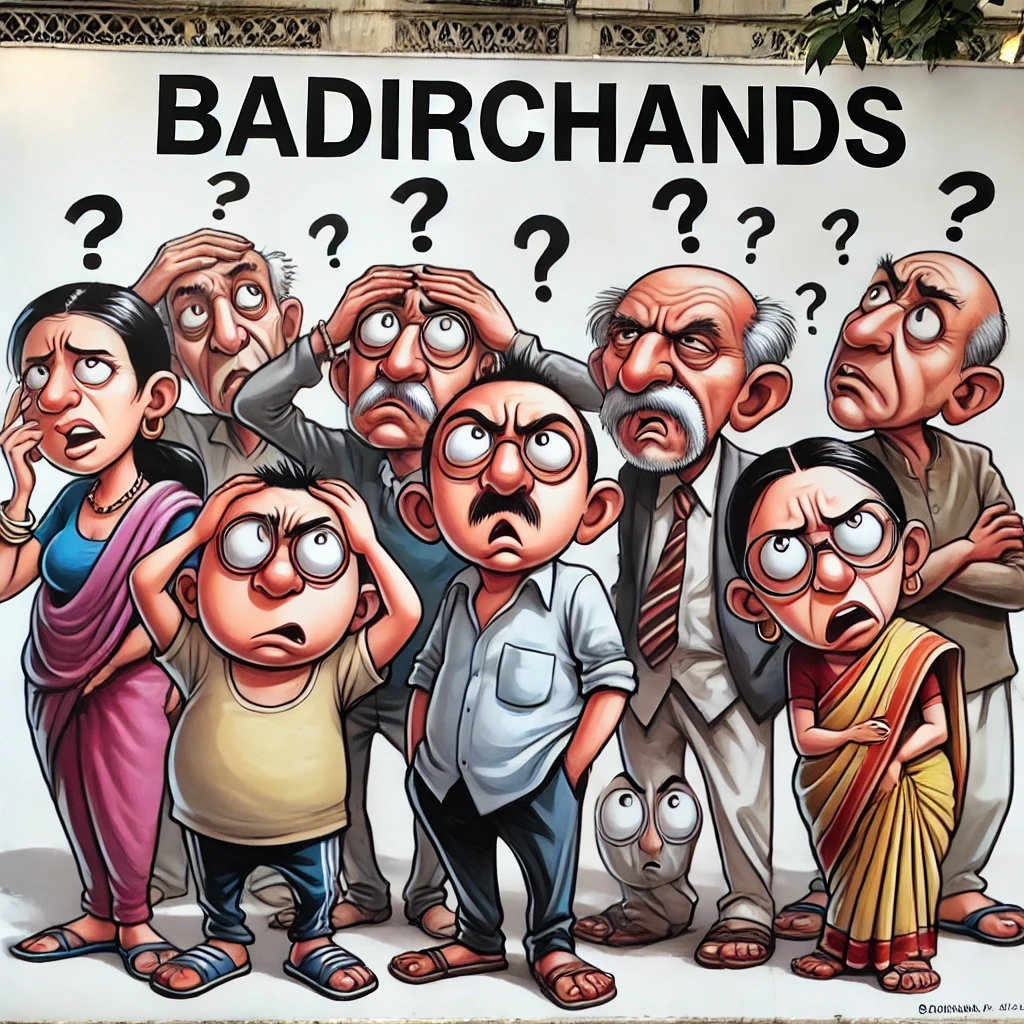India’s linguistic diversity offers a treasure trove of expressions that reveal cultural and social dynamics. Among these expressions, “badirchand” stands out as a colloquial term in Hindi, roughly translating to “idiot” or “fool.” This term has informal, playful undertones but can also carry pointed critique. The plural of badirchands intensifies this by referring to a group seen as foolish or incompetent. This guide explores the history, usage, cultural impact, and societal role of “badirchand,” especially its plural form, within the larger landscape of Indian slang and social discourse.
What Does “Badirchand” Mean?
In the realm of Indian colloquialism, “badirchand” is an idiomatic way of calling someone a fool or idiot. Its usage varies from light-hearted banter to expressions of frustration. While similar to the English “idiot,” it carries distinct cultural nuances shaped by Indian humor and social interaction.

Indian Context: A Cultural Perspective
In India, terms like “badirchand” reflect more than frustration—they mirror the social dynamics of humor, relationships, and hierarchy. Used among friends, the term is a playful form of teasing, while in more serious contexts, it becomes a form of criticism. The colloquial tone of “badirchand” connects it to India’s unique linguistic landscape, where language often serves as a social equalizer or critique.
Plural Form and Collective Identity: “Badirchands”
When “badirchand” is pluralized as “badirchands,” it signifies a group’s perceived lack of common sense or competence. This plural form often appears in social and political commentary, critiquing the actions or behavior of a group rather than an individual. It emphasizes collective incompetence, with social media amplifying its reach as a tool of satire.
Linguistic Trends in Indian Pluralization
Indian languages have distinct pluralization rules. However, when Indian terms like “badirchand” enter English discourse, they are adapted to English grammar. Thus, “badirchands” has become the common English plural form, blending Indian vernacular with English linguistic conventions.
The Rise of “Badirchand” in Digital Culture
Digital platforms and social media have magnified the usage of words like “badirchand.” In online spaces, it has become a symbol of humorous critique. Memes, posts, and viral content often use “badirchand” to call out actions or statements perceived as senseless, especially in public spheres like politics or entertainment.
Social Media, Memes, and Internet Culture
Social media platforms such as Twitter and Instagram have significantly broadened the usage of “badirchand.” Here, it quickly gained popularity as an accessible term for calling out foolish behavior. Memes, in particular, have helped “badirchand” become part of internet humor, where language and cultural references cross borders.
Humor, Satire, and the Social Function of “Badirchand”
The use of terms like “badirchand” taps into India’s rich tradition of humor and satire. In a society where open criticism can sometimes be risky, humor allows for a more subtle expression of discontent. Labeling someone a “badirchand” is often less about offense and more about highlighting flaws through sarcasm.
The Role of “Badirchand” in Modern Indian Society
In India’s fast-paced society, where debates on competence and intellect are frequent, “badirchand” has evolved as a symbol of social critique. It’s a commentary on the societal landscape, reflecting a collective reaction to perceived ineptitude in various domains, including government and media.
Global Influence and the “Philip Cheung Wah Yan Boys” Connection
As Indian culture becomes more globally accessible, words like “badirchand” may find relevance beyond Indian communities. For example, digital subcultures like the “Philip Cheung Wah Yan Boys” may adopt such idioms as they gain exposure to international slang and humor. This cross-cultural exchange shows how language evolves in a globalized world.
Insults in Indian Culture: The Evolution of Terms like “Badirchand”
India’s linguistic landscape includes a rich variety of mild and severe insults. “Badirchand” lies on the lighter end, but its evolution reflects broader trends in social dynamics and critique. While some expressions lose impact over time, others gain significance, shaped by media, regional dialects, and popular culture.
A Look at Indian Slang in Broader Perspective
Indian slang, including insults, is a living part of language that evolves with social changes. Expressions like “badirchand” are part of a larger social commentary. From family discussions to public criticism, language offers insights into societal attitudes, revealing India’s nuanced humor and social structures.
The Future of “Badirchand” and Similar Terms
With the growing presence of Indian vernacular on social media, words like “badirchand” may continue to evolve, possibly even entering the vocabulary of non-Indian speakers. The plural, “badirchands,” could become a mainstream descriptor for collective incompetence as digital culture fosters linguistic exchange.Visit us here clubneet.
Integration with Global Internet Culture
In the interconnected digital age, Indian terms like “badirchand” are poised to influence global internet culture, just as Indian slang increasingly incorporates English terms. This cultural exchange could mean that “badirchand” and similar expressions become known internationally, transcending their Indian roots.
Conclusion: The Cultural Significance of “Badirchand” Today
The plural of badirchand would thus refer to a group of individuals perceived as foolish or incompetent. “Badirchand” is more than just a playful insult—it encapsulates Indian social values, humor, and critique. As language adapts to reflect societal views, terms like “badirchand” reveal how Indians approach satire and social dynamics, especially in the digital age. Understanding “badirchand” offers insights into the adaptability and richness of Indian slang within a rapidly evolving linguistic and cultural environment.
FAQs about “Badirchand” and Its Plural Form
- What does “badirchand” mean?
“Badirchand” is a Hindi term meaning “idiot” or “fool,” used in informal settings. - What is the plural form of “badirchand”?
The plural form is “badirchands,” referring to a group of foolish individuals. - Is “badirchand” offensive?
Context matters; while often light-hearted, it can be offensive if used harshly. - Can non-Indian speakers use the term?
Yes, but they should understand the cultural context to avoid misunderstandings. - Are there similar terms in other Indian languages?
Yes, regional Indian languages have many comparable colloquial insults.


